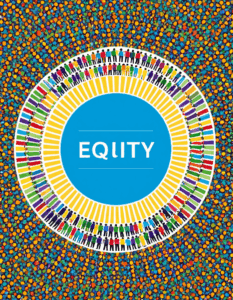Understanding the alcoholism definition is crucial for anyone grappling with its far-reaching implications. Alcoholism, or alcohol use disorder (AUD), is a chronic illness marked by an inability to quit drinking, despite severe consequences. Folks stuck in this cycle often face significant physical and mental health challenges. With nearly 15 million adults in the U.S. impacted by this condition, it’s become a pressing public health issue, and our aim at Mothers Against Addiction is to support parents whose children are struggling with addiction.

What is Alcoholism? A Comprehensive Alcoholism Definition
Let’s unpack the alcoholism definition further. Essentially, it describes a condition where an individual develops a strong urge to consume alcohol, prioritizing it above responsibilities and relationships. This compulsive behavior frequently coexists with physical dependence, which can lead to withdrawal symptoms if alcohol consumption is abruptly reduced or stopped. Besides the immediate hazards, alcohol misuse can escalate into serious health consequences like liver disease, heart complications, and escalating psychological disorders, such as anxiety and depression.
The significance of understanding this condition lies in recognizing the various ways it can manifest. Most of us might think of a heavy drinker as the epitome of alcoholism, but the spectrum is broader. Casual drinkers can gradually slide into more serious patterns without realizing it. Think about it: a night out with friends might be harmless for some but can quickly morph into binge drinking for others.

The Spectrum of Alcohol Use: From Casual Drinking to Dependence
Recognizing the spectrum of alcohol use helps shed light on the alcoholism definition. Here’s a brief overview:
Understanding these stages enables earlier interventions and more effective treatment strategies.
Alcohol Rehab: Pathways to Recovery
When the journey of alcoholism seems overwhelming, alcohol rehab becomes a beacon of hope. Facilities like the Hazelden Betty Ford Foundation take comprehensive approaches to treatment, encompassing a variety of services that fit individual needs. Anyone stepping into rehab can expect a combination of detox treatments, therapy sessions, and family support, which play critical roles in recovery.
Rehabilitation isn’t just about quitting alcohol; it’s about fostering personal growth and healing. Many centers emphasize holistic therapies, like yoga and mindfulness, to address the root of dependency. Recovery is a multifaceted process that values both mental and physical health.
The Impact of Alcoholism on Families and Communities
While the alcoholism definition primarily focuses on the individual, the repercussions extend well beyond. Families often bear the brunt of the emotional and financial toll. Spouses, parents, and children frequently find themselves grappling with feelings of guilt, shame, and frustration due to a loved one’s addiction.
Moreover, societal impacts of alcohol misuse include heightened rates of domestic violence, family dysfunction, and financial instability. A striking statistic from the American Academy of Family Physicians (AAFP) reveals that over 11 million children in the U.S. reside with a parent battling alcohol use disorder. If we can unite communities to provide support and resources, we can break the cycle of addiction.
Co-occurring Disorders: Alcoholism and Mental Health
An alarming reality is the concurrent struggle with mental health issues like depression or anxiety alongside alcoholism. This intertwining of challenges complicates recovery pathways, underscoring the need for comprehensive strategies. Dual diagnosis facilities specialize in treating both alcoholism and mental health disorders concurrently, leading to more effective outcomes.
Facilities such as the Promises Treatment Centers recognize the complexities involved in treating co-occurring disorders. They focus on personalized treatment plans, meaning that both mental health and addictive behaviors are addressed together. This understanding can significantly increase the chances of successful recovery.
Life After Alcoholism: Stories of Recovery and Hope
Recovery is both attainable and transformative. Celebrities like Demi Lovato and Ben Affleck have come forward, sharing their personal experiences with addiction. Their candidness resonates deeply, providing reassurance that even after immense struggle, a fulfilling life can blossom. These stories remind us all that resilience exists within each of us.
Recovery isn’t a straight pathway, and setbacks can occur along the way. But, with access to support networks like Mothers Against addiction, families won’t have to face this journey alone.
Innovations in Alcoholism Treatment: The Future Landscape
Adapting to the ever-changing landscape of addiction treatment means looking toward innovations in therapy. Emerging research is uncovering medications that target cravings in novel ways and advances like teletherapy are broadening access to care. Platforms such as Talkspace demonstrate how online therapy can effectively reach individuals who may feel isolated in their struggles.
Moreover, the intersection of addiction treatment and ongoing health concerns like HIV/AIDS is gaining attention. Recognizing that individuals with alcohol dependency face heightened risks when also managing HIV infection is critical for tailoring comprehensive treatment plans. For example, alcohol can diminish the effectiveness of HIV medications. Understanding this relationship highlights the necessity of involving healthcare providers who can address all aspects of a patient’s wellbeing.
Embracing Change: Moving Forward Together
As we collectively deepen our understanding of the alcoholism definition, fostering a compassionate and open dialogue about addiction is vital. Sharing personal narratives, advocating for accessible treatment, and nurturing supportive communities are all essential for tackling this epidemic.
Together, as families, communities, and allies, we can change lives. Whether you’re a parent dealing with a child’s addiction or someone seeking healing for yourself, remember that hope and recovery are always within reach. You are not alone in this journey.
At Mothers Against Addiction, we stand with you every step of the way, ready to provide resources, support, and above all, connection.
Alcoholism Definition: Fun Facts to Get You Thinking
Understanding Alcoholism in a Nutshell
So, let’s dive into the alcohol addiction scene! You might be surprised to learn that the alcoholism definition isn’t just about heavy drinking. The National Institute on Alcohol Abuse and Alcoholism (NIAAA) describes alcoholic use disorder (AUD) as an inability to control or stop drinking despite the negative impact it has on life. Astounding, right? If you’re curious how the effects stretch beyond an individual, consider the story of Yolanda Hill robinson and how her experiences with addiction have inspired others to seek help and understanding.
Added complexity? The definition of alcoholism also intersects with various mental health issues. For instance, did you know that 30% of individuals grappling with depression often find themselves facing substance use disorder? This relationship can be explored further through a handy depression medication list designed to help tackle mental health alongside addiction. If you’ve ever wondered,What Does weed limit The body To do? or the paradox of struggles with different substances, there’s a lot of interconnectedness we should consider!
The Signs and Impact of Alcoholism
Let’s switch gears to some fascinating signs and effects of alcoholism! For instance, binge drinking might seem harmless, but it’s one of the biggest red flags in understanding the alcoholism definition. More often than not, binge drinkers might experience memory blackouts or unexpected changes in behavior. If that’s something you recognize, maybe it’s time to seek resources available at places like Open Evidence.
Here’s a fun tidbit: some celebrities, like Jai Courtney, have openly discussed their battles with addiction, shedding light on the prevalence of alcoholism in the public eye. Knowing these stories emphasizes that addiction affects everyone, regardless of status. And speaking of status shifts, let’s not forget the cultural touchstones, like the movie Madea Boo, which touches on trust and recovery within family structures, making audiences rethink what addiction looks like in their lives.
Community and Recovery
Finally, the road to recovery is made easier with community support. But did you know there’s a growing movement around viewing skateboarding as a method of healing? Definitely check out initiatives like Skate city that use the sport as a form of therapy for those recovering from addiction. This fascinating avenue allows individuals to channel their energy while building a support network at the same time.
And remember, the alcoholism definition continues to change as we gather more knowledge about addiction and its roots. Engaging stories and community initiatives give hope, and understanding these terms helps us approach the subject with compassion and awareness. Whether it’s through film, sports, or artistic expressions like those from Hugo Sanchez, we keep unfolding the narrative, understanding that alcoholism isn’t just a label, but a journey many are bravely navigating.





























